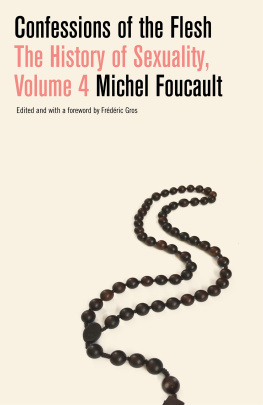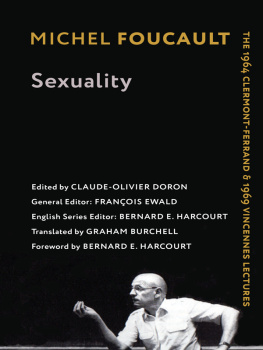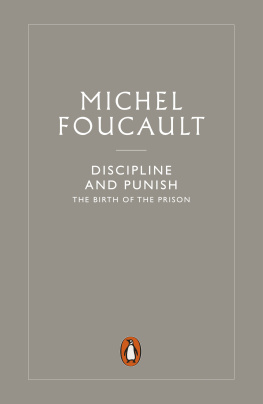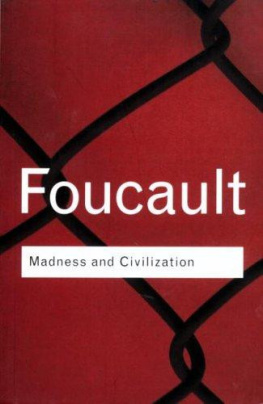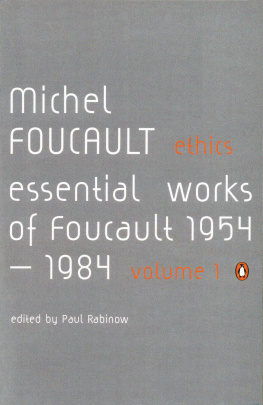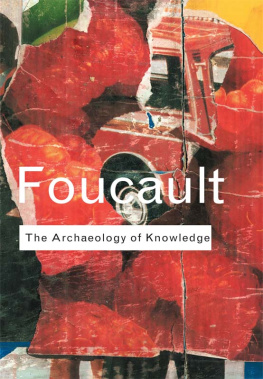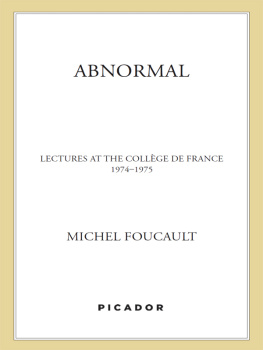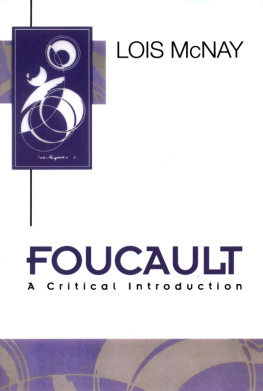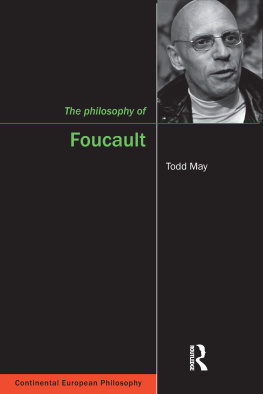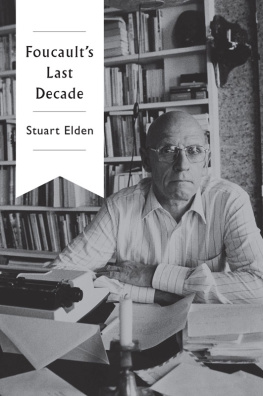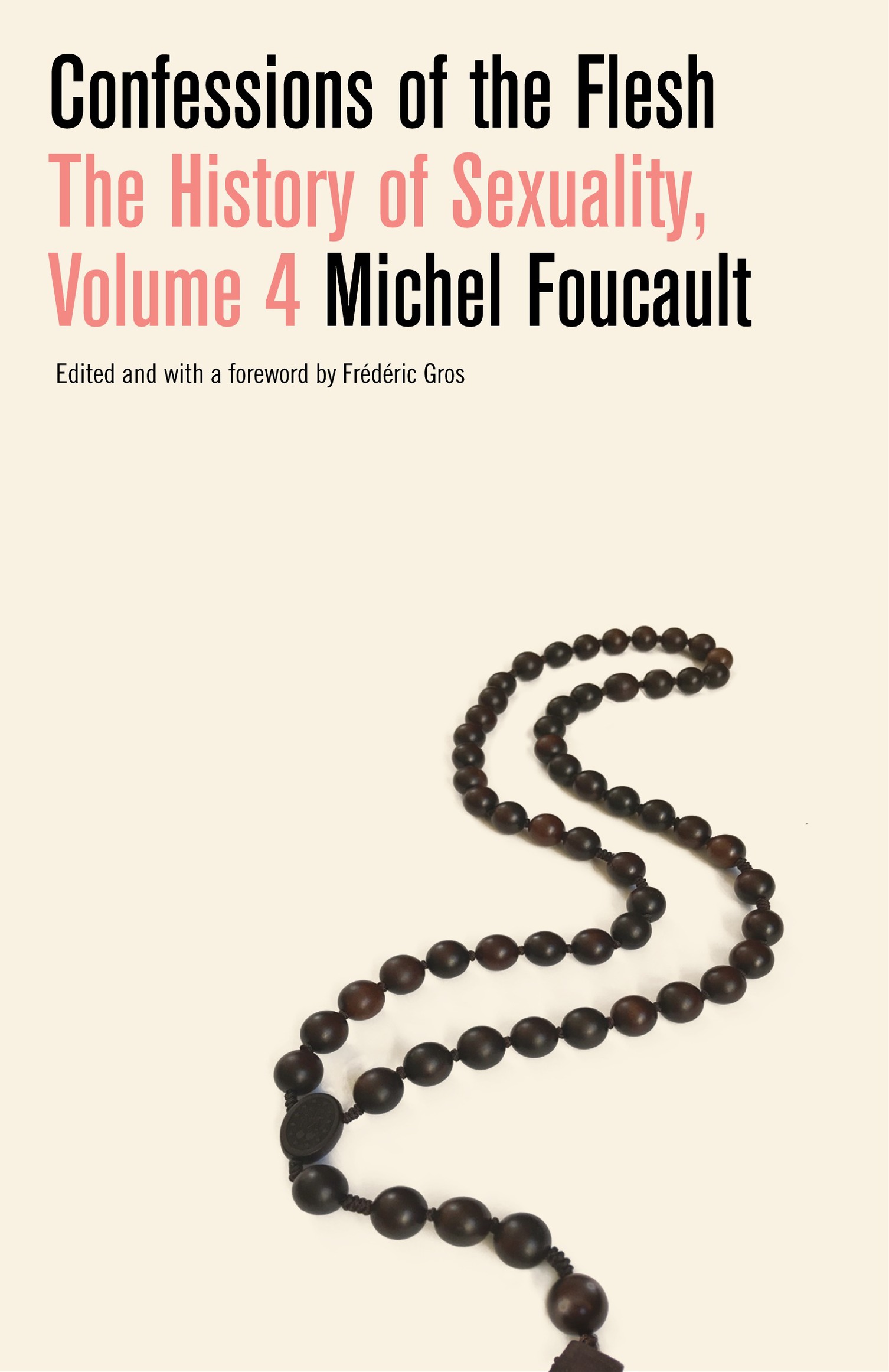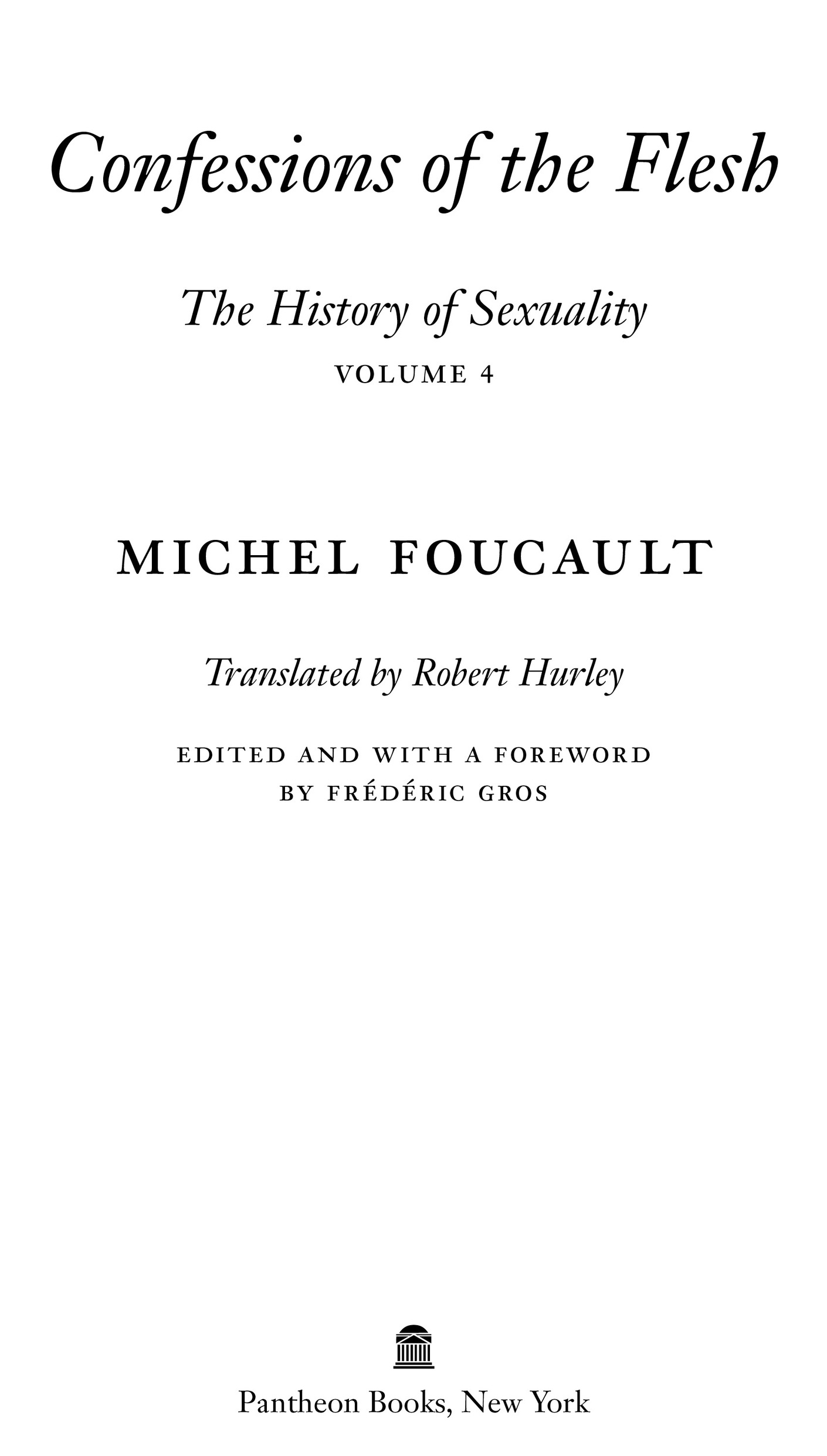Also by Michel Foucault
Madness and Civilization: A History of Insanity in the Age of Reason
The Order of Things: An Archaeology of the Human Sciences
The Archaeology of Knowledge (and the Discourse on Language)
The Birth of the Clinic: An Archaeology of Medical Perception
I, Pierre Rivire, having slaughtered my mother, my sister, and my brotherA Case of Parricide in the Nineteenth Century
Discipline and Punish: The Birth of the Prison
The History of Sexuality, Vol. 1: An Introduction
The History of Sexuality, Vol. 2: The Use of Pleasure
The History of Sexuality, Vol. 3: The Care of the Self
Herculine Barbin, Being the Recently Discovered Memoirs of a Nineteenth-Century French Hermaphrodite
Power/Knowledge: Selected Interviews and Other Writings, 19721977
English translation copyright 2021
by Penguin Random House LLC
All rights reserved. Published in the United States by Pantheon Books, a division of Penguin Random House LLC, New York, and distributed in Canada by Penguin Random House Canada Limited, Toronto. Originally published in France as Les aveux de la chair by ditions Gallimard, Paris, in 2018. Copyright 2018 by ditions Gallimard, Paris.
Pantheon Books and colophon are registered trademarks of Penguin Random House LLC.
Library of Congress Cataloging-in-Publication Data
(Revised for vol. 4)
Foucault, Michel.
The history of sexuality.
Translation of Histoire de la sexualit.
Contents: v. 1. An introduction | v. 2. The use of pleasure | v. 3. The care of self | v. 4. Confessions of the flesh.
1. Sex customsHistoryCollected works. I. Title.
HQ12.F6813 1980 306.7 79-7460
HC ISBN 9781524748036 (v. 4)
EBK ISBN 9781524748043 (v. 4)
lccn.loc.gov/2020024533 (v. 4)
Ebook ISBN9781524748043
www.pantheonbooks.com
Cover design by Peter Mendelsund
ep_prh_5.6.1_c0_r0
Contents
Foreword
In 1976, Michel Foucault publishesunder the title La volontde savoir) and a Please insert slipped into the volumes at the time of their publication. The plan to study the modern biopolitical dispositif of sexuality (sixteenth through nineteenth century)partially treated in Foucaults courses at the Collge de Francewas dropped in favor of the problematizationthrough a rereading of the philosophers, physicians, and orators of Greco-Roman antiquityof sexual pleasure from the historical perspective of a genealogy of the desiring subject and under the conceptual horizon of the arts of existence. Volume 4, devoted to the problematization of the flesh by the Christian Fathers of the early centuries (from Justin to Saint Augustine), forms part of this new History of Sexuality, displaced by a full dozen centuries from the initial project and finding its point of gravitation in the construction of an ethic of the subject. The Please insert of 1984 concludes as follows:
Hence, finally, a general recentering of this vast study on the genealogy of desiring man, from classical antiquity to the first centuries of Christianity. And its distribution into three volumes, which form a whole:
The Use of Pleasure studies the way in which sexual behavior was reflected by Greek thought []. Also how medical and philosophical thought elaborated this use of pleasurekrsis aphrodisionand formulated several themes of austerity that would become recurrent on four major axes of experience: the relation to the body, to the wife, to boys, and to truth.
The Care of the Self analyzes this problematization in the Greek and Latin texts of the first two centuries of our era, and the inflection it undergoes in an art of living dominated by the preoccupation with oneself.
Confessions of the Flesh will deal, finally, with the experience of the flesh in the first centuries of Christianity, and with the role played in it by the hermeneutic, and purifying decipherment, of desire.
The genesis of this ultimate work is complex. One needs to recall that in the Histoire de la sexualit, plan one, the Christian practices and doctrines of confession of the flesh were to form the object of a historical examination in a volume titled The Flesh and the Body.
The year 1980 constitutes a decisive moment in the development of studies leading to the manuscript of the Confessions. Foucault presents at the Collge de France, in February and March 1980, without ever indicating that they have their place in a history of sexuality, a series of precise and documented historical inquiries relative to the Christian truth obligations in the preparation for baptism, the rites of penance, and monastic direction between the second and fourth centuries of our era. So one can say not only that, as early as the end of 1980, Foucault has a strong intuition of the architecture and the main arguments of the Confessions of the Flesh, but also that he has already accomplished a substantial investigation of the sources, at least for the study of the rituals of penance and the principles of monastic direction.
The definitive drafting of the text of the Confessions can be situated in the years 1981 and 1982. In an issue of the journal Communications,
One can say, then, concerning the process since La volontde savoir (1976), that as early as 19771978 the project of a history of modern sexuality (sixteenth through nineteenth centuries) is abandoned for the sake, in a first phase (19791982), of a recentering in the direction of a historical problematization of the Christian fleshthrough the principal truth acts (exomologesis and exagoreusis), the arts of virginity, and the doctrine of marriage in the Christian Fathers of the first centuriesand then, in a second phase (19821984), of a decentering toward the Greco-Roman arts of living and the place occupied by the aphrodisia within them.
It must have been in the autumn of 1982 that the manuscript on the Christian conception of the fleshalong with the corresponding typescriptwas delivered to Gallimard.will delay him in his rereading of the Confessions of the Flesh and will possibly dissuade him from undertaking a rewrite. From March to May 1984, as he is finishing the editorial work around volumes 2 and 3, exhausted and gravely ill, he takes up the correction of the typescript of the Confessions of the Flesh. Hospitalized on June 3 following a physical breakdown, he dies at the Salptrire on June 25, 1984.
To establish this edition, we have therefore drawn on the manuscript written in Foucaults hand, together with the typescript. is rather faultyit could not be entrusted, for reasons of unavailability, to the secretary who usually typed his texts and was very familiar with his handwriting.
We thus returned to and prioritized the original text, adding chapter titles when they are missing. For the titles, we have opted for descriptive restraint, except perhaps for the chapter The Libidinization of Sex, but Foucault himself speaks in the body of the text of a libidinization of the sexual act. For the chapters, we have preserved the divisions present in the manuscript. The titles The Laborious Baptism and The Art of Arts are Foucaults. One finds them in a projected plan (box 90, second page of folder 1).

